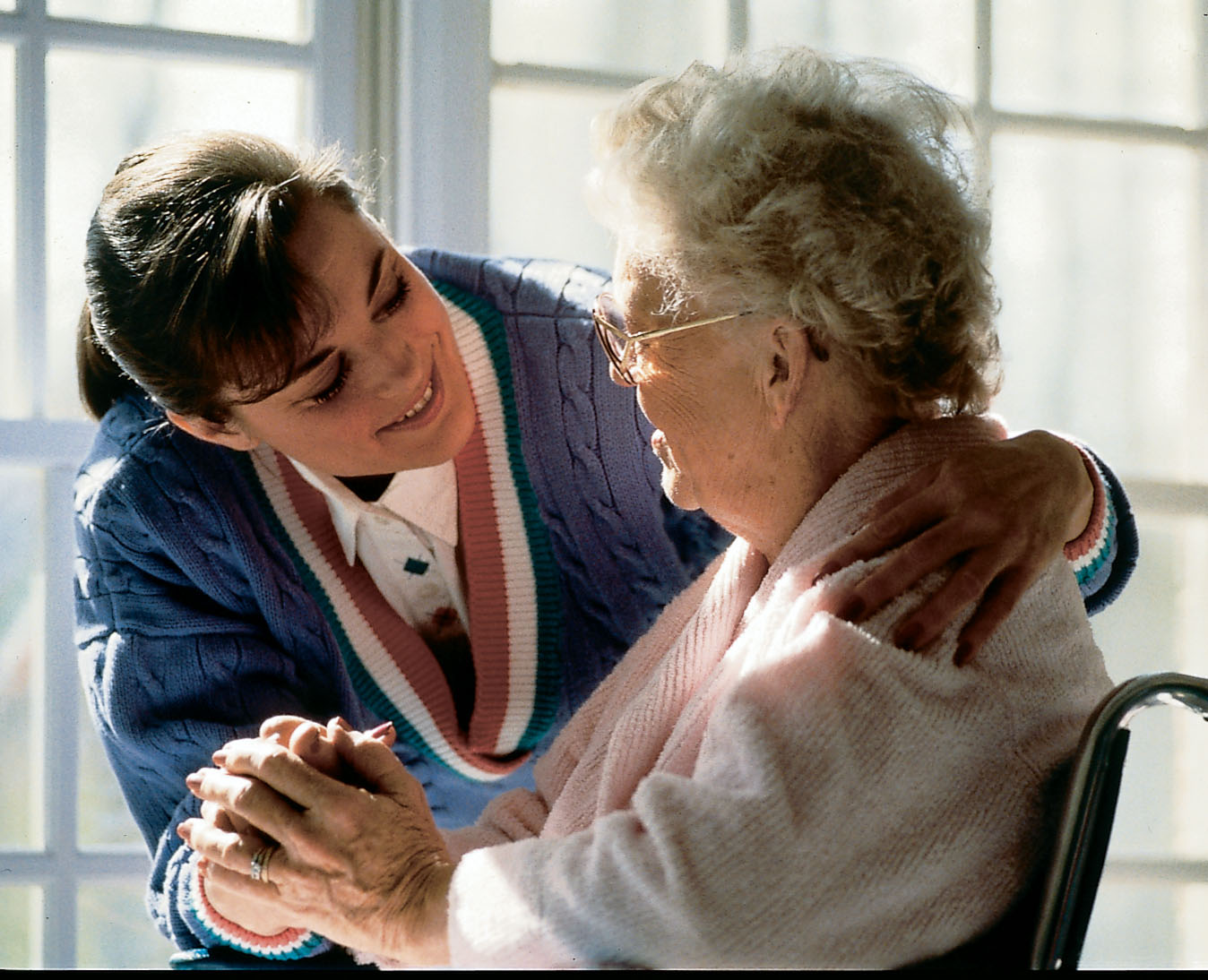
Here’s the fact of the matter: All of us will either be a caregiver or need a caregiver at some time in our lives. Because caregivers still do not get the attention and respect they deserve from a pay stand point or an identity standpoint, most of us don’t know what to look for or what to develop in ourselves to make sure that our loved ones are treated with dignity, compassion, and care.
As someone who has dedicated her career to the care of seniors, I am constantly recruiting and head-hunting people that I think should work in this industry. I’ve found people at Hair Cuttery, Subway, and I have given out my card at Safeway more times than I can count. The truth is, having a CNA or a HHA does not make you an effective caregiver. Sure, it gives you a great basis for the medical side of caregiving, it teaches you safety precautions that you need to know for ADLs and IADLs, but being an effective caregiver is about much more than this. And so, my self-help nerdism has pushed me to create this list below. Behold, The 7 Habits of Highly Effective Caregiver:
1. Be Proactive, not reactive
Effective caregivers know their client. In fact, knowing the person you are caring for is more important than any other habit. Be weary of any care agency or community that doesn’t ask for biographical information, as a huge part of being able to predict future behaviors is having a big picture understanding of the personality, values, and roles of the person you are caring for. Effective caregivers plan ahead for ADLs with an understanding of what techniques will make their client feel safe and respected.
2. Begin with the End in Mind- Have a Care Plan
Beginning with the end in mind means that as a caregiver, you know what the ultimate goals are with the person you are caring for. If you are a caregiver, or especially if you plan on hiring a caregiver, it is imperative to have a care plan in place before the start of care. A good care plan outlines not only the ADLs that the person needs help with, but also goals for care, such as increasing strength or decreasing falls. A good care plan is not focused on limits, but possibilities. Involving the person receiving the care in this discussion and formation of the care plan can be a fantastic way to reinforce autonomy and independence.
3. Put First Things First- Remember Maslow
Just as Covey explained, if Habit 2 is about mental creation, Habit 3 is physical. Once you have a well thought out care plan, prioritizing those things will make care more effective. It’s helpful to think of Maslow’s hierarchy here, and remember that creating purpose and joy for our clients or loved ones is, of course, the ultimate goal, but there is no way to achieve it if the much more basic needs are not being met. For example, if the care plan you develop emphasizes that the goals of care are to optimize nutrition and improve hygiene, your focus should be on getting that person engaged in their care first. Focusing on socialization or sense of purpose before first addressing those primary needs will only derail care.
4. Thinking Win-Win Means Spending 5 to Save 20
As a caregiver, there are no shortcuts in providing quality care. When I was in the world of assisted living, “Spending 5 to Save 20” was somewhat of a cultural mantra. Here are a couple examples of what it means…
-
When getting a loved one or client up and dressed in the morning, spend 5 minutes before you even mention dressing to connect with them as a person, to build trust, and create rapport.
-
Instead of pushing the wheelchair to get the client to the dining room faster, allow him to push it himself if he is able. Not only does this physically allow him to maintain strength, but it allows him to maintain dignity. Walk beside him and engage in conversation instead.
See, here is the thing. People do not want us to do care to them, they want us to be with them as they do it themselves. Maintaining as much independence for as long as possible is so important, and not only is it a win for the client or loved one, it makes care easier and more enjoyable for us too. Win. Win.
5. Seek First to Understand, Then to be Understood
More than anything, all of us crazy humans just want someone to listen and understand us. This is absolutely no different when we age, and if we areplaying the role of a caregiver, it is the only way we can create trust and provide effective care. Asking how someone is doing, looking them in the eye, and waiting however long they need to respond, can be a gift. This is the opposite of popping in and saying “How are you?” as you walk past them. A caregiver does just what their title implies, they give and care. Giving time and attention is the greatest way to show someone not only that you care, but also that they matter.
6. Synergize and Collaborate
Very rarely is a caregiver the only one who is ever with the client/ loved one. Whether there are other nurses, family members, or even neighbors that interact with and occasionally provide care to the person, each of you have different experiences. This is why it is so important to constantly communicate what is working. It is all too common for us to want to share every detail of the problems we are having when we are providing care, yet never share the progress, successes, and accomplishments we experience each day.
If you, as a caregiver, discover that playing Jazz music in the morning helps Mr. Smith feel relaxed enough to take a bath, share that with everyone who helps care for Mr. Smith. If you find that Mrs. Jones participates more in care if you start by letting her pick out an outfit, share that! If mom suddenly loves nothing more than to talk about the latest advice she heard from Dr. Oz, (and let’s be honest, who doesn’t love to talk about that), use that to involve her in her nutrition and share that with her other caregivers!
7. Sharpen the Saw – Care for the Caregiver
Listen. Being a caregiver is one of the most difficult, if not the most difficult job there is. Another person’s needs determine your entire day, your whole focus, and a huge piece of your heart. You give all of yourself to the other person, and you often forget that if you don’t take care of yourself, you will never be able to take care of anyone else. That is really important, and very hard to truly embrace, so I would invite you to write that someplace and say it over and over. An effective caregiver is one that understands that they are a human with needs and limits, just like the person they are caring for. To be effective you MUST take time for yourself. You wouldn’t expect a dull saw to cut down a tree effectively, and you can’t expect yourself to be effective as a caregiver if you don’t take the time you need to stay sharp.

